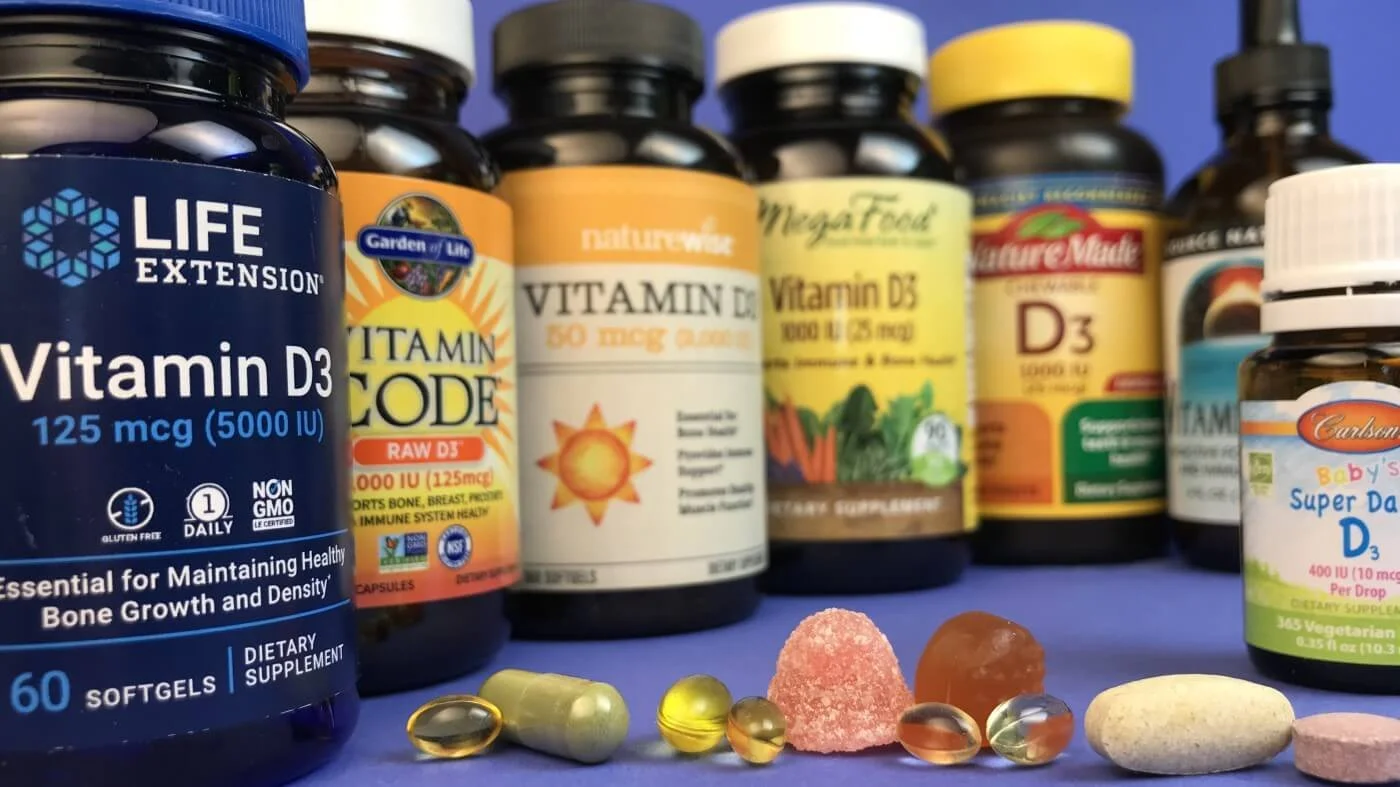The Importance of Vitamin D
What is Vitamin D?
Vitamin D is a fat-soluble vitamin that can be obtained through diet but our bodies are better able to produce it through sunlight absorption. Within the UK it is recommended that we take a vitamin D supplement as we are unable to obtain enough sunlight throughout the autumn and winter months. The Nutrient Reference Value (NRV) of Vitamin D for adults is 10 micrograms (mg) per day which is often expressed as International Units (IU) with 10 mg = 400 IU. So, within the UK from around April to September we are able to produce enough vitamin D through sunlight on our skin as well as maintaining a balanced diet.
However, to avoid deficiencies it is important that we take a Vitamin D supplement as well as try and obtain as much vitamin D from our diets. Foods high in vitamin D include oily fish (e.g. salmon and mackerel), liver, eggs (yolks), red meat, fortified foods such as breakfast cereals and cod liver oil.
Symptoms of Vitamin D Deficiency:
Tiredness and fatigue
Poor sleep
Anxiety and depression.
Hair loss
Muscle weakness
Loss of appetite
Weakened immunity.
Ricketts in children
Poor calcium absorption leading to osteoporosis and bone density loss, later on in life.
Within recent years the importance of vitamin D has become more prevalent. Vitamin D is needed to regulate the amount of phosphate and calcium in the body which help to keep bones, teeth and muscles healthy. However, research during the COVID-19 pandemic has shown that vitamin D also affects the immune system, with people with vitamin D deficiencies being more susceptible to contracting Coronavirus and were more likely to experience more intense symptoms.
Vitamin D and Sleep
The importance of sleep is not unknown to us. However, with many of us living extremely busy lifestyles, and attempting to carry out numerous tasks within a day, sleep is often the first thing that we sacrifice. So, despite us knowing that sleep is just as important to us as food, oxygen and water, why do we not prioritise it as much as we should? Whilst looking into the psychology of why we do not sleep as much as we should is extremely interesting, this post is looking at vitamin D and its importance to our health and sleep. However, a very thought-provoking and insightful book looking into sleep is ‘The Seven Day Sleep Prescription’ by Dr Aric Prather.
Although evidence is not concrete, it has been found that people with vitamin D deficiencies are more likely to experience disrupted sleep and contract sleep disorders. So, can taking a vitamin D supplement help improve our sleep quality?
Studies have shown that low levels of vitamin D can lead to delayed bedtimes, fewer sleeping hours, low-quality sleep and more nighttime wakings. So why does vitamin D affect our sleep?
Melatonin Production: Melatonin is also known as the sleep hormone and it relies on vitamin D in order to be produced. Therefore, low levels of Vitamin D will mean that the body is unable to produce enough melatonin, in turn disrupting your sleep.
Sunlight: Getting fresh air and sunlight each day is extremely important in helping our bodies circadian rhythms (sleep-wake cycles) and as we have discussed before, sunlight absorption is the main way in which we can produce vitamin D. Therefore, getting enough sunlight throughout the day can help our bodies produce more vitamin D which will in turn aid in melatonin production, improving sleep.
Brain Function: Vitamin D also plays a role within our central nervous system, helping to maintain normal brain function. Therefore, low levels of vitamin D can lead to areas of the brain that are responsible for sleep, to not function properly, negatively affecting our sleep.
Whilst vitamin D is important for our health and can aid in better sleep, it is not the main solution. So, other ways in which we can improve our sleep include:
Ensuring we are active throughout the day.
Creating a relaxing bedtime routine.
Having blackout curtains or a sleep mask.
Limiting screen time before bed - No blue light (screens) at least one hour before bed.
Light stretching or yoga before bed
Ensuring your sleep environment is comfortable i.e. a comfortable mattress and pillow as well as making sure your room is at a comfortable temperature.
Overall, vitamin D and sleep are extremely important for our health and ensuring that you get 7-9 hours of sleep a day can aid in your recovery in turn helping you to train better. So whilst the sun is out in the UK, make sure you get outside and absorb as much sun as possible as well as maintain a healthy diet. But if you are unsure of your vitamin D intake, it is always recommended that you take a daily supplement.
For more nutrition information and help meeting your fitness goals. Join my online coaching group.




